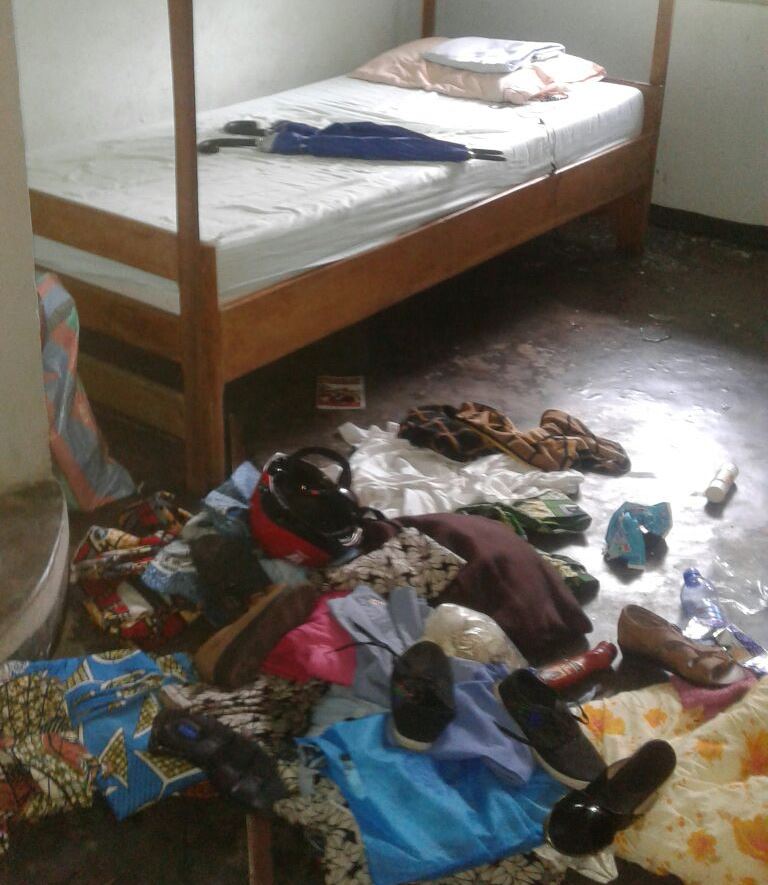|
Violence convulses DRC, targets the Church
Tuesday, April 11, 2017
"The Catholic Church in this country never let itself be co-opted by any political group. Now attempts are being made to embroil the Church in the conflict."
By Maria Lozano
NEW YORK—The rector of a seminary in the Democratic Republic of Congo refused
a militia’s request for space on its grounds. In the wake of authorities’
crackdown on the militia, its members attacked and gravely damaged the
seminary.
It was one of
several incidents in recent months that saw the Catholic Church in DRC become
the target of violence by groups with a range of motivations. Some of them are
political, as the Church acted as mediator in forging an accord between the
country’s president and the opposition—a role the Church has since given up.
Father
Richard Kitengie Muembo, rector of Christ the King Theological Seminary in
Malole in DRC, which was partially set on fire and destroyed on Feb. 18, 2017,
described a chaotic scene, as the 77 seminarians had to be evacuated on the eve
of the attack. In the end, UN troops had to come to their rescue.

The militia
is loyal to the late tribal leader Jean-Pierre Kamwina Nsapu Pandi, who had contested
the legitimacy of the central government, calling for a rebellion and attacking
the local police—whom he accused of abuse of power—as well as rival communities.
Kamwina Nsapu was killed by security forces last summer. However, his forces
have kept up armed resistance, which to-date has led to the death of at least
400 civilians and an untold number of security forces.
On March 31,
the rebel forces attacked the city Luebo, setting fire to the Catholic schools
office of the local diocese, destroying a novitiate of women religious, and desecrating
the Cathedral of St. John the Baptist. Father Kitengie Muembo told international
Catholic charity Aid to the Church in Need that “the Catholic Church is highly
respected in this country because it has never let itself be co-opted by any
political group. Now attempts are being made to embroil the Church in the
conflict.”
The Church
insists it is not taking sides, also accusing the government for authorizing
overly harsh measures on the part of security forces and not tackling grave
unemployment, both factors in the ongoing unrest in DRC. Young people are
targets for recruitment by various militia. The crisis in Kasai caused by
Kamwina-Nsapu militia in the southern part of the country is one of five armed
conflicts in DRC.
Father
Richard Kitengie Muembo is hopeful his seminary will eventually be repaired and
reopened, pending a measure of peace returning to the region. He said: “The
Catholic Church in the Democratic Republic of Congo is in the same situation as
all of the Congolese people. Parts of the population are hiding in the jungle.
Schools have been closed, hunger reigns … We dream of an end to this pointless
war. Looters from all over the world come here to exploit the country.”
The priest
also charged that “anyone who uses modern technology nowadays is in some way
using the blood of the Congolese people,” the priest pointed out. In this, he
is making reference to coltan, a black ore made of columbite and tantalite
which is used in the production of batteries for mobile phones and other
digital devices. Coltan is considered to be one of the so-called “blood ores,”
as its extraction involves human-rights violations and is helps finance armed
groups.
In 2016, ACN
spent more than $3.5M to fund projects in the Democratic Republic of Congo,
including the support of 41 seminaries, which benefited a total of 1,229 seminarians.
A room in the Malole seminary after the attack; ACN photo
|